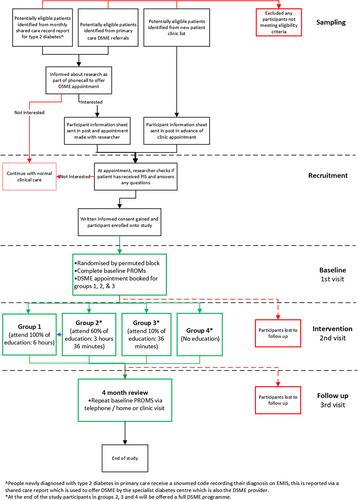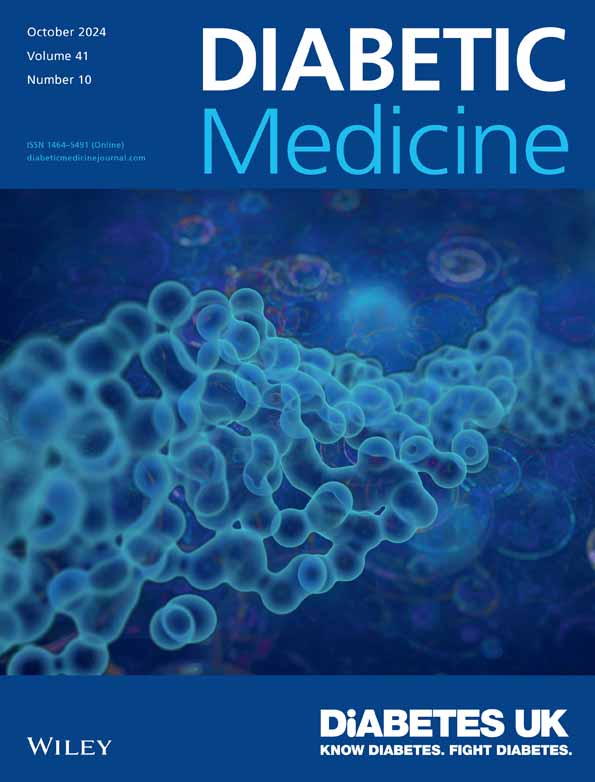Evaluating the impact of differing completion rates of a face-to-face DIABETES self-management education programme on Patient Reported Outcome measures (DIABETES PRO): A feasibility trial protocol
Abstract
Introduction
Structured diabetes self-management education (DSME) is internationally recommended for people with type 2 diabetes to support self-management and to prevent associated long-term complications. ‘Attendance’ at DSME is currently benchmarked as having completed a registration form and at least one active engagement with programme content, and ‘completion’ measured against ≥60% completion, despite landmark trials reporting outcomes based on the full completion of a programme. Little is known about the effectiveness of DSME on the psychological and emotional health of people with diabetes who complete less than the full DSME programme. We report a protocol for a single-centre randomised feasibility study to assess the impact of differing completion rates of a face-to-face DSME programme on patient reported outcomes of self-care, diabetes distress and quality of life in people with type 2 diabetes.
Methods
A randomised feasibility study in 120 people with type 2 diabetes due to attend a secondary care diabetes clinic in the North West UK for DSME. Participants will be randomised into one of the four groups: Group 1 full DSME programme, Group 2 60%, Group 3 10% and Group 4 0% (delayed education). Psychometric questionnaire scores will be evaluated at baseline and 3–4 months post-intervention. Measures of feasibility (eligibility, recruitment and retention rates) will be reported.
Ethics and Dissemination
The DIABETES-PRO study was approved by the London–Surrey Borders Research Ethics Committee (24/LO/0235). Results will be shared with study participants and published in peer-reviewed journals.
Trial Registration
Clinicaltrials.gov NCT06419907.


 求助内容:
求助内容: 应助结果提醒方式:
应助结果提醒方式:


